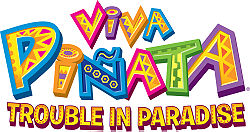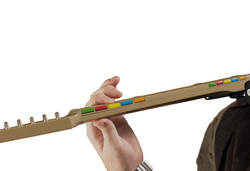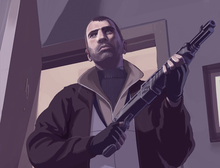Led Zeppelin Refuses Master Tracks for Rhythm GamesLed Zeppelin Refuses Master Tracks for Rhythm Games
 Rhythm Games such as Rock Band and Guitar Hero will go without original masters of Led Zeppelin because the remaining band members don’t want to see their most valuable possessions in the wrong hands.
Rhythm Games such as Rock Band and Guitar Hero will go without original masters of Led Zeppelin because the remaining band members don’t want to see their most valuable possessions in the wrong hands.
For Activision and MTV, original master tracks are the most valuable asset they can get their hands on. Cover bands work well and many do great justice (sometimes better) to the original artist but masters are where it’s at! What if those tracks are ever “lost” while mastering them for a video game?
Page and the crew aren’t looking to take that risk, no matter what Activision and/or MTV is ready to pay for those original tracks. Led Zeppelin is a classic rock band, perhaps stuck in old ways, but they’re lively hood is in those master tracks; it’s the heart of the Led Zeppelin sound.
To Led Zeppelin it’s not worth the risk in losing those masters just go get their songs in a video game.
The band isn’t comfortable with the prospect of granting outsiders access to its master tapes, a necessary step in creating the games. “It ain’t about the money,” Mr. Mensch says. (WSJ)
Can you fault them for the mistrust? Risking everything you’ve worked on since 1968 just to get your product in a video game isn’t an easy decision. Many folks, Aerosmith included, probably see this as a great opportunity to get their songs into the youth, market themselves on a new medium and make a few bucks while doing it. There is definitely going to be some ego involved with being able to see your songs grow on a brand new rock medium, but not everyone thinks the same.
To some artists, music isn’t all about marketing and popularity. To each his own, but it’s upsetting to know we won’t be rocking out to any classic Led Zeppelin with a wailing Robert Plant and beating the drums like one of the most respected drummers in the industry: John Bonham.

 Once upon a time Rare though they had a winner; a game which would end all the confusion between a hardcore console and a kiddie console. Viva Piñata was supposed to change the way we think about Xbox 360 gaming by showing off a title that would make children feel more inclined to game on a “big boys console.”
Once upon a time Rare though they had a winner; a game which would end all the confusion between a hardcore console and a kiddie console. Viva Piñata was supposed to change the way we think about Xbox 360 gaming by showing off a title that would make children feel more inclined to game on a “big boys console.”

